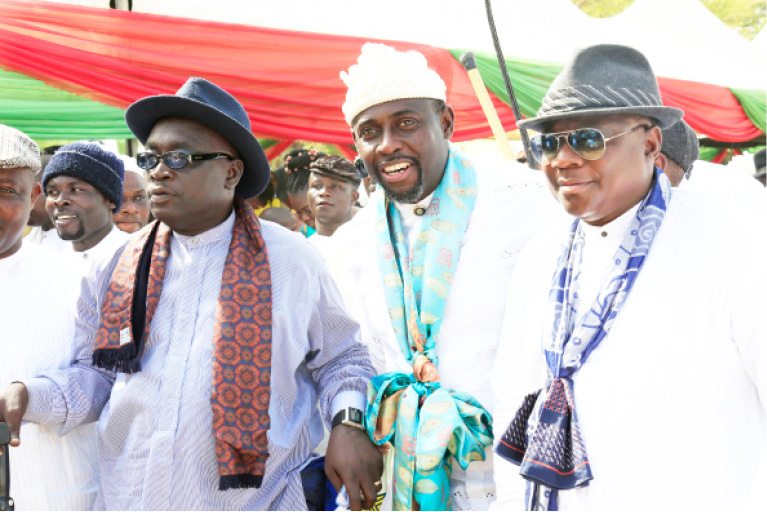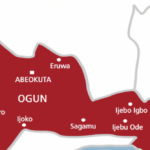John Offiong is the brain behind Usen Efik a day which has given Abuja residents and guests a teaser and feel of the annual Yuletide Calabar Festival and Efik cultural heritage. He speaks on the initiative which started in 2016 as a way of preserving parts of a culture going extinct, as well as sustaining cultural fiestas in Nigeria and promoting home-grown tourism from them.
Please tell us about the annual cultural event, Usen Efik.
It started in 2016 as a vehicle to promote Efik culture and our heritage in our present home, Abuja. ‘Usen Efik,’ meaning Efik day, is a day we set aside in the last weekend of November to showcase our rich Efik culture and identity by displaying traditional dances, attires, poems, dramas, masquerades and cuisine. This is a day of solidarity, love and thanksgiving, and an opportunity to share with our neighbours of other ethnic groups in our adopted home, Abuja. The event serves as a free fun outdoor gathering for culture and art. We hope to include support programmes organised by the group, such as free history, language, career holiday camps for children, job centres, as well as a proposed FCT/Cross River State School Exchange programmes in the nearest future.
Did the Calabar Carnival play a role in this?
No, not at all. We have a lot of Efik people in Abuja, and quite a lot of them neither go home for the Christmas nor carnival festivals. We thought it would be a great opportunity to bring the culture over to others too, who are not from Calabar to experience our rich culture and have a feel of what the Calabar Yuletide festival is like in terms of cultural displays. The Calabar carnival does not have any influence on the Efik culture because it is more of a street carnival, whereas Usen Efik is more of a display of Efik culture and heritage.
What was the motivation to start it?
It was mostly because most of our masquerades and Efik dishes are going extinct, and we felt it was necessary to revive these cultures. Beyond that a lot of our Efik homes outside Calabar, don’t get to speak our language and encourage our culture. With the coming of Usen Efik, we have created a day in which we encourage everyone to speak the Efik language, as that is the main language spoken on that day.
Over time since the inception of the Calabar Carnival, other cultural carnivals have sprung up across Nigeria and have fizzled out. What do you think is the reason for this?
They have fizzled out because they were ill conceived. Carnivals are not just commercial transactions; they are delicate economic development vehicle. That means it ought to be well conceived by ensuring that it captures the economic potentials of a region and responds positively to the social realities and norms of that geography.
For example, carnivals in the Caribbean evolved through the experiences of the slaves and thus capture the pain of slavery and celebrate the joy of freedom. So there must be a message.
Also, I believe this has to do with the passion of the people behind a project or initiative. It may also have a lot to do with acceptability and possibly sponsorship too. For example, Calabar Carnival has over 10 different organizations waiting to sponsor it. It happens at the end of the year when people are on holidays and it’s easier for people to travel down to participate in it. That makes it grow stronger every year. Timing is Key as well.
Now you have whetted our appetite in Abuja with Usen Efik, what are you doing to ensure that it will be sustained?
We are building the traffic organically from one year to the other, and more through referrals and social media awareness. That way, more people look forward to the event yearly. We are working on getting sponsors to ease of most of the challenges faced by the group, having in mind that it is not a ticketed event.
What would you say Nigeria should be doing differently to sell cultural and tourism activities to attract local, home-based patronage?
Government needs to introduce fiscal incentive policies such as tax breaks to encourage corporate Nigeria to support the promotion of our culture. The reality is that corporate sponsorship during our events translates into jobs creation and as such they deserve some fiscal incentives like a tax break.
While this is an Efik cultural event, what are you doing to ensure that non-Efiks can benefit from it and actively participate?
We hope that non-Efiks who attend our event will be encouraged to introduce and support efforts that will promote and showcase their own culture. At our event we introduce the essence of each cultural display in English so our non-Efik guests understand the history and message of these dances, masquerades and other attractions.
What are some of the challenges you’ve had to surmount with organising the festival?
Our challenge is conveying all the masquerades from Calabar to Abuja safely, having in mind that we have over 20 different kinds of masquerades on display that day. We also have to provide feeding and accommodation for over 150 people from the different groups that come in for the display. Being that we do not have sponsors yet, we believe, as the event grows bigger, it will organically attract sponsorships, which will ease the challenges faced presently. The other challenge we have experienced is arranging the different costumes, considering the fact that most of this masquerades brought for the event have not been played in so many years.




